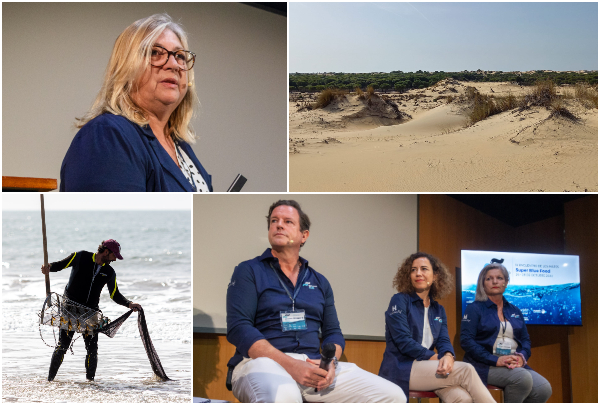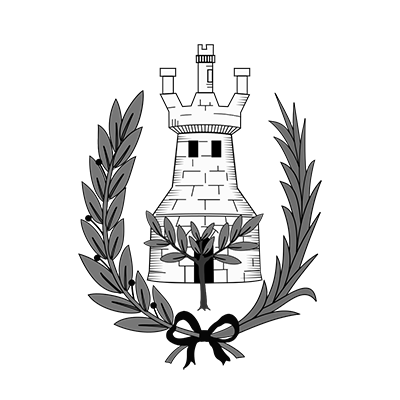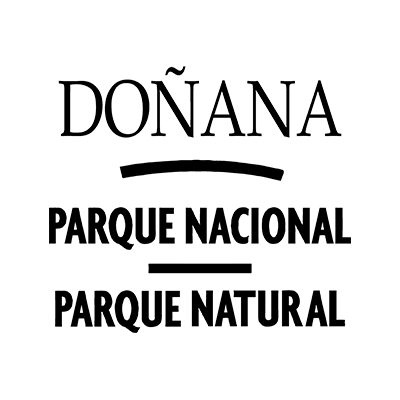News
Fishing demands more attention from governments, otherwise "after two generations there will be no fishermen left"

Representatives of the fishing world raise their voices for the acknowledgement of a key sector, an "increasingly more sustainable sector", a sector which "needs recognition before it dies out".
On Thursday the Doñana National Park was the activity venue on the second day of Meeting of the Seas. The discussions began with fishing, followed by a visit to the park at noon, and lunch in the park at the spectacular Palacio de las Marismillas, courtesy of Andalusian chefs Xanty Elias (Finca Alfoliz) and Juanlu Fernández (Lú, Cocina y Alma*, Jerez de la Frontera). In the afternoon the congress moved to Chiclana by boat across the Guadalquivir, where another Andalusian duo served up dinner. Ángel León and Pedrito Sánchez. This was their first cook-in together. Andalusia on land and sea, air and flavour.
The status of fishing in Spain and the world was the main topic of the first talks during the congress. Laura Rodríguez, director of MSC Spain and Portugal; María del Carmen Díaz, president of Spain's Artisan Fishing Federation, and Javier Garat, general secretary of the Spanish Fishing Confederation, used the Meeting of the Seas as a mouthpiece to showcase the profession and demand recognition and appreciation, "because otherwise after two generations there will be no fishermen left", they warned.
Garat, who defined Meeting of the Seas as "the world's best event, because it is the only congress which combines cookery, science and journalism", stated at the preceding congress that "those of us who work in the fishing industry are the baddies in the film". And this year he added: “Fishing has a problem with its image". Díaz, daughter and granddaughter of fishing folk, added: “The sector is deteriorating. It's a profession which entails a lot of sacrifice, but it's sustainable, it helps the local economy and also people's health, and the general public has to know that". She called on the general public and the authorities for recognition: “We're being persecuted. Legislators are unaware of the reality of the situation, and we have to deal with some very complex regulations. Civil servants must show more empathy", she complained.
Myctophids, a new marine super food?
Garat finished up his talk by acknowledging errors and demonstrating strengths: “We have a great variety of fishing fleets in Spain, but we must find a balance between continuing our profession and feeding the population and preserving biodiversity and the sustainable use of resources. We want to reduce our impact. Find out what the acceptable level is", he admitted. And impacts and fishing were also touched on by marine biologist Susana Agustí, who presented another super food that can feed human beings, the main issue at Meeting of the Seas 2022.
These are the "sundown fish" or myctophids, a new marine super food option, "where research must still be conducted" because, although this is "the planet's most abundant vertebrate, living at depths of between 200 and 1,000 metres, with a high nutritional value (high content of fat and protein, iron, Omega 3 and other fatty acids that are essential to the organism)", fishing this species "may alter other major cycles". The most obvious is the effect on the trophic chain, in which myctophids are the third link and are the food of fish that are most important to us, such as cod, tuna, swordfish etc.
Another problem, "perhaps the biggest of all", concerns the role of oceans in capturing CO2 from the atmosphere. It is known that, without the oceans, the effect of global warming would be much greater, and myctophids play a decisive role in removing CO2 from the surface because, as organic matter, they emit CO2 but, since they spend most of the day in the depths, they accelerate its conveyance to the sea bed. “If we could remove myctophids en masse we could alter that cycle", she said. Discussions to open minds and secure the best option, vision and mission of Meeting of the Seas, a congress organised by Vocento's Gastronomy division, alongside Andalusia's Regional Government as institutional sponsor, and Iberostar Hotels & Resorts as sustainable partner.
Lunchtime visit in the "prime ministerial" heart of Doñana
The environmental issue continued with a guided tour of the Doñana National Park, finishing up at Palacio de las Marismillas in the park - the habitual summer residence of Spain's prime ministers - where Xanty Elias (Finca Alfoliz) and Juanlu Fernández (Lú, Cocina y Alma*, Jerez de la Frontera) put together an Andalusian/international lunch. Before this, a sample of canned marine produce courtesy of Scout (Canada), Salazones y Conservas Herpac (Barbate) and Frinsa La Conservera y Minerva, both of which form part of Grupo Frinsa (Galicia).
The congress was rounded off with dinner at the Alevante restaurant with Ángel León and Pedrito Sánchez (Bagá*), who were cooking together for the very first time.












